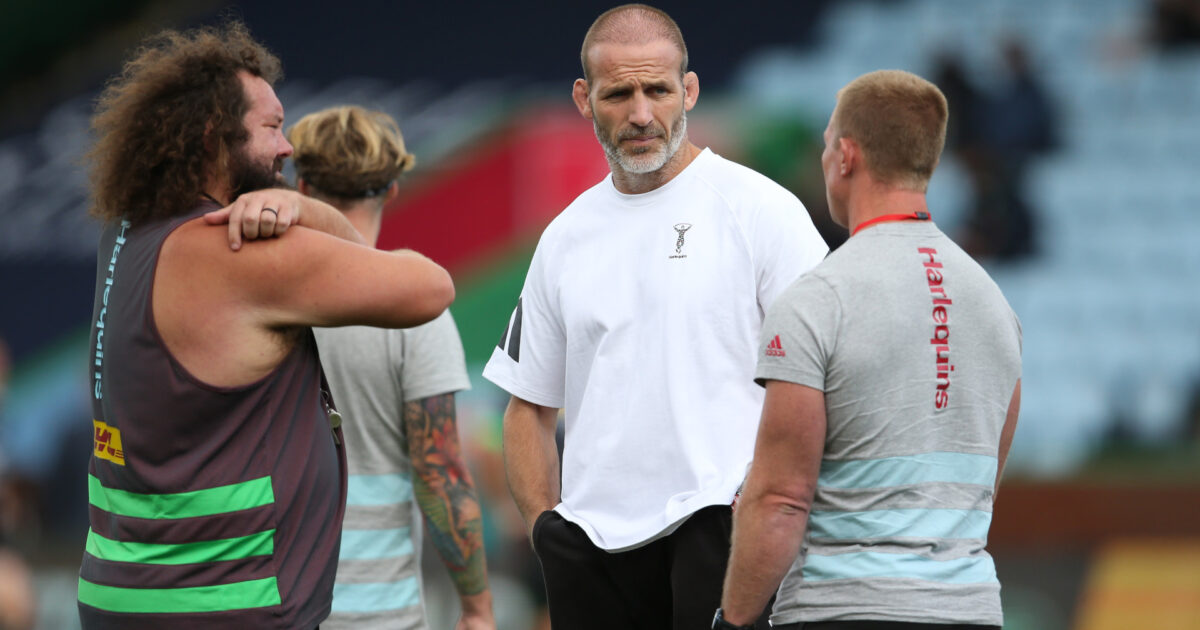Harlequins at 'pointy end' of 16-week search for a Paul Gustard replacement

Harlequins general manager Billy Millard has revealed that a “very thorough, enjoyable” process to find a replacement for Paul Gustard is finally nearing completion with the London club’s shortlist down to “one or two” 16 weeks after the exit of their head of rugby.
While Gustard will soon re-emerge as defence coach at Benetton in the restyled Guinness PRO16, Harlequins have taken four months to reach a stage where they soon hope to announce the identity of a new head of rugby. Harlequins are currently in the closing stages of chasing down what they hope will be a second-ever Premiership title win and they expect to be able to reveal the name of their new man before next month’s playoffs.
Asked about the current state of play with recruitment, Millard said: “It’s not a DoR, it’s a head coach and yeah, it has been a very thorough, enjoyable process. As you know we have taken our time and we’re at the pointy end now. Definitely, within a couple of weeks, we are hoping we will have the announcement but we are just at the back-end of it now.
“We’re expecting a new body in the building from outside the building… we’re at the pointy end where (we are down to) one or two. We are just at that pointy end. We are nearly there.”
Harlequins have enjoyed a rich vein of form since Gustard departed last January, winning nine of their twelve Premiership games ahead of this Saturday’s trip to Challenge Cup finalists Leicester. Millard admitted the vacancy created by their director’s snap exit attracted much interest and he is confident the imminent announcement of their new head coach won’t distract from their title challenge when it is made public.
"There were a lot of bum taps and hugs but it was more about celebrating the emotion of the win"
– What unfolded in Harlequins' dressing room last Sunday after Brown's red card was followed by a dramatic Premiership victory https://t.co/pNixDnUYFD
— RugbyPass (@RugbyPass) May 13, 2021
“It [the vacancy] was very popular. I’m not sure of the ballpark figure (that applied) but it was a lot. It was more about us trying to find the right fit for what we need the next two to five years and the way we are sort of going at the moment, someone to come in and complement the environment rather than shake it up too much too quickly. That appeals to people. Like, we are going well, it’s a club with so much going for it on and off-field so yeah, there was no shortage of interest.
“The person we get will be brilliant. Internally, externally, it will be understood and embraced. Our comms team and Laurie (Dalrymple, CEO) will have a chat about that [an announcement date]. All the players know it’s happening. There is no shadows or anything. It will be a really positive thing and the timing of that will be up to the comms department.”
Pumped factor = HIGH ?
First up #CHIvRED ?
8.05am KO UK time ?Don't miss a moment of the action, sign up with RugbyPass for #SuperRugbyTransTasman at https://t.co/MoNqCqajxg
Credit: @SuperRugbyNZ pic.twitter.com/7Ozwp0RlIz
— RugbyPass (@RugbyPass) May 13, 2021































































